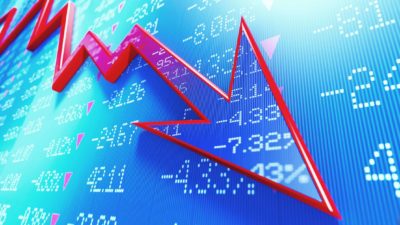This article was originally published on Fool.com. All figures quoted in US dollars unless otherwise stated.
Thinking back to the last financial crisis, Warren Buffett played a big role in calming chaotic markets. While sensationalist analysts were calling for the end of public equities as we know them, Buffett's company, Berkshire Hathaway (NYSE: BRK.A) (NYSE: BRK.B) was taking his own advice by exercising greed while others chose fear.
Buffett is not a stock trader. Instead, rigorous quantitative analysis, an artistic touch, and extensive management evaluation are all time-consuming prerequisites for Berkshire Hathaway deciding on an investment. To put it plainly, Berkshire Hathaway covets a time horizon longer than most.
In 2009, Berkshire Hathaway used the financial crisis as a chance to initiate large investments in American banks, the sector at the root of all economic pain. While Buffett called a stock market bottom nearly a full year too early, it did not matter. The call showed confidence and inspired tranquility in financial markets desperately trying to find their footing. In the previous crisis, he stuck to his guns as an investor, and inspired anxious investors to do the same. He did not subscribe to frightening current events; instead, he tuned out the noise.
Buffett's coronavirus strategy
The coronavirus pandemic offers us our next case study of Buffett functioning in a global crisis. The current pandemic is similar to the financial crisis in that both are overwhelmingly frightening, and temporary. Neither catastrophe enjoys a definitive end date, but an end date is inevitable, nonetheless.
Berkshire Hathaway bought aggressively in 2009 after the market's historic crash, but not during this tumble. So far, Buffett has sold, at a sizeable loss, stakes in Delta Airlines (NYSE: DAL) and Southwest Airlines (NYSE: LUV) just weeks after adding to them. The dichotomy of reactions when comparing the 2008 crisis to this one is notable to say the least.
Warren Buffett's behavioural change is not a matter of financial health. Berkshire Hathaway has the liquidity to make mammoth investments. Its balance sheet boasts zero long term debt and features a $124 billion cash and equivalents position, compared to just $59 billion in 2009. The result is a publicly traded company with a massive amount of funds available for investment, not one strapped for funds.
So what happened?
Dissecting recent moves
Since we know Berkshire's financial health isn't in question, it is important to note that Buffett sold just enough stock in each of the two airlines to reduce the stake below 10% of the float. Under SEC regulations, any stockholder owning over 10% of a public equity is considered an affiliate. Affiliate status subjects an investor to Second-Step Acquisition (SSA) oversight by the Federal Government. Importantly, this affiliate status induces regulatory oversight for any subsequent affiliate acquisition of the same company, or of a related company. This means if Berkshire Hathaway wanted to make a large purchase in the aviation industry, affiliation status with Delta or Southwest would have jeopardised the process.
By avoiding affiliation status, Buffett gains more flexibility to make a big splash elsewhere. But the company's continued silence raises questions. I believed the sales were setting them up for something big, but it has been weeks since the abrupt airline trades, and markets have strongly recovered from wash-out lows.
The inaction in Nebraska could be a less favourable outlook on this crisis than the past one, but I don't see it that way. Instead, I think the Warren Buffett playbook is being complicated by historic federal intervention. The federal government has shelled out record levels of liquidity over the last few weeks, via fiscal and monetary easing, trillions of dollars in liquidity has been granted to corporations and individuals to try and ease the pain of the Coronavirus. Airlines are receiving payments to keep employees on payroll, and the federal reserve continues to expand their lending programs to include more companies.
Most of the hard hit industries are being supported by Washington D.C, meaning Warren Buffett must compete with federal disaster loans carrying low to zero interest coupons. That is steep competition, compared to the favourable terms Buffett and his firm locked in during the financial crisis. To compare, Berkshire was paid 6% by Bank of America preferred shares to take a stake more than a decade ago. This time around, If Berkshire Hathaway opted to compete with the more involved federal government, the real return would have been inferior. It is possible that Buffett wants to wait for the dust to settle to identify industries not already aided by the government.
Interesting weeks ahead
Each morning, I open my computer, half expecting to see a headline about Berkshire Hathaway buying a struggling blue-chip company. S&P multiples have been trimmed dramatically from February highs, iconic brands have seen their stocks crumble, but I still see it as a possibility. Perhaps federal intervention prevents Buffett from getting the terms he wants, or maybe his view on the American economy has finally soured, but I don't think so. I think there are things in the works and he is biding his time. Regardless, following the activities of the Oracle of Omaha is always a fascinating practice.
This article was originally published on Fool.com. All figures quoted in US dollars unless otherwise stated.








